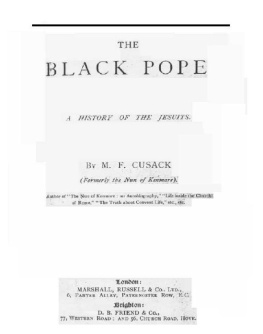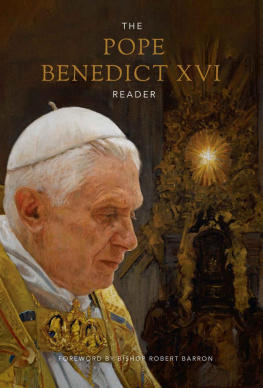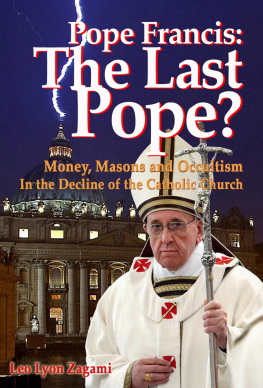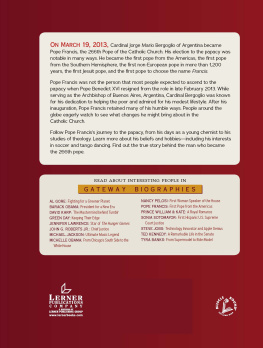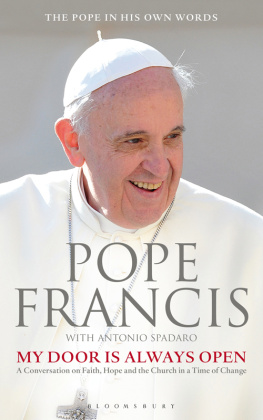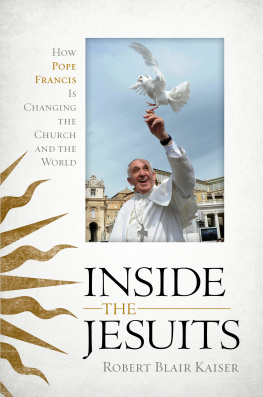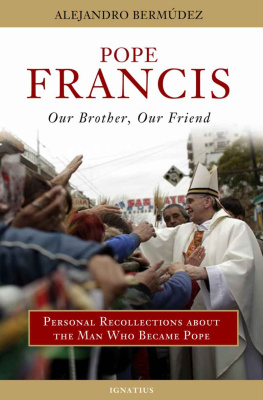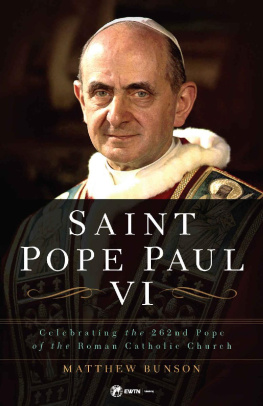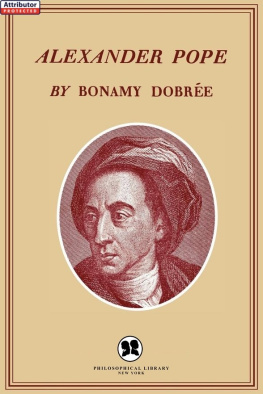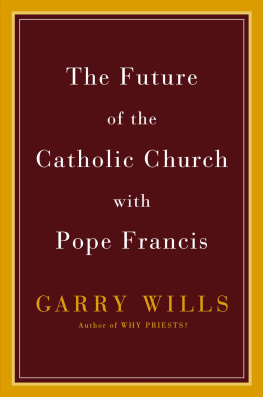M. F. Cusack - The Black Pope
Here you can read online M. F. Cusack - The Black Pope full text of the book (entire story) in english for free. Download pdf and epub, get meaning, cover and reviews about this ebook. year: 1896, genre: Religion. Description of the work, (preface) as well as reviews are available. Best literature library LitArk.com created for fans of good reading and offers a wide selection of genres:
Romance novel
Science fiction
Adventure
Detective
Science
History
Home and family
Prose
Art
Politics
Computer
Non-fiction
Religion
Business
Children
Humor
Choose a favorite category and find really read worthwhile books. Enjoy immersion in the world of imagination, feel the emotions of the characters or learn something new for yourself, make an fascinating discovery.
- Book:The Black Pope
- Author:
- Genre:
- Year:1896
- Rating:4 / 5
- Favourites:Add to favourites
- Your mark:
- 80
- 1
- 2
- 3
- 4
- 5
The Black Pope: summary, description and annotation
We offer to read an annotation, description, summary or preface (depends on what the author of the book "The Black Pope" wrote himself). If you haven't found the necessary information about the book — write in the comments, we will try to find it.
The Black Pope — read online for free the complete book (whole text) full work
Below is the text of the book, divided by pages. System saving the place of the last page read, allows you to conveniently read the book "The Black Pope" online for free, without having to search again every time where you left off. Put a bookmark, and you can go to the page where you finished reading at any time.
Font size:
Interval:
Bookmark:
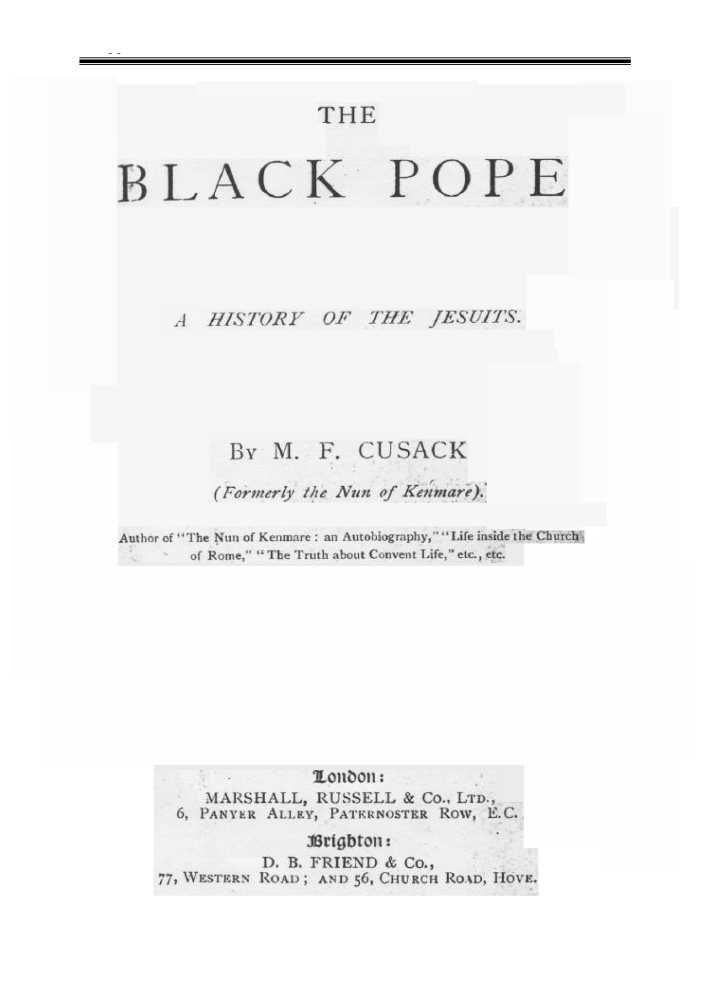
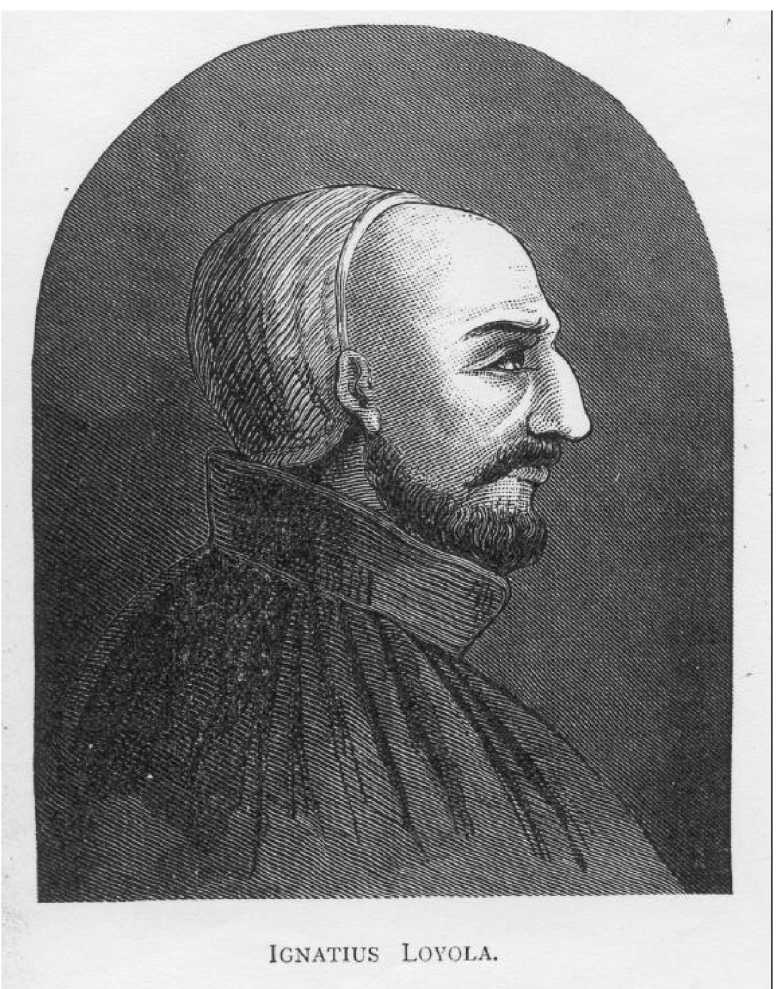
London:
PRINTED BY A. M. ROBINSON AND SON, I, LOMBARD COURT, EX-WORKS: DUKE STREET, BRIGHTON.
The title of this work may require some explanation. In Roman Catholic circles it is well known that the Black Pope is the term used for the General of the Jesuits. As the Pope is always robed in white, and the General in black, the contrast is obvious. But those Romanists who do not greatly love the Jesuits, and their number is not limited, use the term as indicating that the Black Pope rules the White Pope. The expression will be found in the recently published life of Cardinal Manning. As the writer had some difficulty in finding a title which would not conflict with many others used in works treating on the same subject, this one was chosen for distinction, and for its special appropriateness.
M. F. Cusack.
Brighton,
March 26th , 1896.
Introduction. Remarks on the rapid change of religious opinion since the commencement of the present century. Advance in power and social influence of R. C. s.They now attack Protestant dignitaries publicly without fear; formerly they were only tolerated because they were silent. Importance of this change to the future of English speaking countries.The influence of the Jesuit has been fatal to every country, Catholic or Protestant, where they have been allowed to exist.They are condemned by Pope Clement XIV. as far from being any comfort to the Holy See, or any advantage to the Christian world; remarkable letter of Pere la Chaise to Father Peter, S. J.The Jesuits the great promoters of the changes which have been made in the creed of the Church of Rome during the last two centuries.The predisposing causes of the Reformation.
The marked and comparatively rapid changes of religious opinion which have characterised the 19th century will be a subject of profound interest to the historian of the future. Nor are the character of these changes less noteworthy. The Roman Catholics were a feeble folk when the century began, now they hold their own in court, and camp, on the judicial bench, and in the senate. But it was not merely that they were numerically feeble, they were the subjects of contumely and abhorrence. They were mistrusted and hated. Whence then this change? To-day, a Roman cardinal can denounce the actions of an Anglican archbishop; can question his motives, and scorn his priestly orders with scarce a note of censure. Again; whence the change?
The Jesuits, dreaded as being more papal than the Pope, and more Catholic than the College of Cardinals, were fain to remain in obscurity, at the risk of their lives, if they emerged from it. To-day the Jesuit is to all intents and purposes master of the situation. His favourite pupils decide Protestant causes, and with calm effrontery honour the head of their Church as a temporal prince before the Queen, and place him in the position which he claims to be his by divine right, as king of kings and lord of lords.
A faint breath of public disapprobation may be heard: it is but as the echo of a ringdoves note, in comparison with the shout of indignant protest which such an act would have called forth in the twenties or thirties of the present century.
If the Roman Catholic Church has advanced in England by leaps and bounds, it has been because the heads of that Church have known how to prepare the way for the leaps, by steps which were very slow, but very sure, and by ceaseless perseverance in securing advantages.
And so it has been with what, for want of a better name, we must call Ritualism. In the early days of the century the services in St. Paul's Cathedral were performed behind the heavy organ screen, where the singers could scarcely be heard, and the few worshippers could scarcely be seen. How changed all this is now need scarcely be told.
But the influence of the Jesuit is by no means limited to that which he secures through the opportunities which he possesses of forming the character of those who are destined to be our future statesmen. With keen insight into the needs of the times, the heads of the Order make a speciality of training young men for the Press. It behoves us then to inquire whether these future editors and writers are embued with high principles of patriotism and honour, and whether they are afforded even-opportunity of intellectual culture and advancement. Are they encouraged to think out the weighty problems of the age? Is the past history of their Jesuit masters, as educators, such that we can leave the future in their hands and believe that the honour of England is safe in their keeping? These are serious questions. The man who cares so little for his country as to pass them by lightly, can only blame himself if his neglect proves the ruin of his immediate posterity.
Since the fact that the Jesuit has been banished again and again from every country where he has had Power cannot be denied, it is surely most important to know what are the charges made against him, and how it is that he continues to exist despite such persistent repression. What are his principles, and how far do they differ from those of his co-religionists? How is it that he has been denounced in such terms of scathing reprobation by one pope, and re-instated in all his ancient privileges by another? What shall we say of a church which so vacillates between praise and blame? What shall we say. of a religious order which prides itself on being called by the name of the Saviour of mankind, and yet has made the practice of untruth a fine art, and reduced the practice of lying to a science? It may be objected that these are strong expressions. The question is, not whether the words which we use are strong or feeble, but whether they are true or false. Is it not of the gravest importance to know why a body of men, who are educating the English speaking men of the future, were denounced by the head of their own infallible Church as a Society which was "far from bringing any comfort to the Holy See, or any advantage to the Christian world? As we shall go fully into the question of the suppression of the Jesuits by the supreme authority of the Church which they have been founded to uphold, we shall not now enter into this subject more fully. It may, however, be noted in passing that the chief points of complaint against the Society have been the same at all times, and in all countries. They have been accused of scandalous political intrigues which they have carried on for the advancement of the Order; they have been accused of teaching a lax morality, to put the accusation in its mildest form; they have been accused of quarrels amongst themselves; they have been accused of gross insubordination to ecclesiastical authority; and they have been accused of sanctioning idolatry, if they did not encourage it, amongst the heathen whom they were supposed to convert to the Christian religion. All these accusations are made in the infallible Bull of Pope Clement XIV, and in this Bull he expressly declares that he has examined all these charges, which were no new matter, as they had been brought before other popes, and that, he was fully assured that they were substantiated.
The history of the Jesuits should also be studied in connection with the extraordinary influence which the Order has had in adding to the dogmas of the Church.
The dogma of the immaculate conception was admittedly their work, the new doctrine of. the infallibility of the Pope, which has been the cause of so much secret revolt in the Church of Rome, is credited to them, assisted no doubt by the spiritual ambition of Pius IX.
Font size:
Interval:
Bookmark:
Similar books «The Black Pope»
Look at similar books to The Black Pope. We have selected literature similar in name and meaning in the hope of providing readers with more options to find new, interesting, not yet read works.
Discussion, reviews of the book The Black Pope and just readers' own opinions. Leave your comments, write what you think about the work, its meaning or the main characters. Specify what exactly you liked and what you didn't like, and why you think so.

